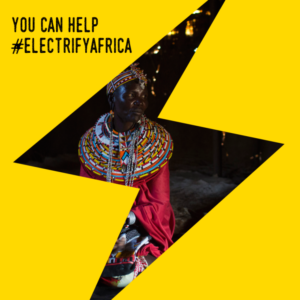In the next week, the U.S. House of Representatives is expected to vote on the Electrify Africa Act, passed by the Senate under unanimous consent late last year. This bill directs the President to establish a multiyear strategy to assist countries in sub-Saharan Africa, implement national power strategies and develop an appropriate mix of power solutions, including renewable energy, to provide access to reliable, affordable, and sustainable power in order to reduce poverty and drive economic growth.
On behalf of the African Energy Leaders Group, a high-level public-private partnership launched last year, we welcome the leadership of the U.S. Congress on this issue. It is our view that the Electrify Africa Act will provide a durable strategic framework to address the challenges of energy poverty on the continent by leveraging a private sector-led, market-based approach which is essential to the sustainability of this effort over time. If passed, Electrify Africa will be the most significant legislation to advance U.S. commercial relations with the continent of Africa since the initial passage of AGOA, 15 years ago.
A wide range of energy sources exist on the continent. Yet, more than 600 million Africans lack access to affordable, reliable and modern energy services. Hundreds of millions are also denied access to basic nutrition, quality education, medical services and sanitation due to lack of adequate energy supply. Recent surveys of African businesses reveal that energy costs account for 40-60 percent of operating expenditure (more than 10 times what it is in the United States), dramatically increasing the cost of doing business in Africa. The effect of the power deficit on our economies is damaging and tangibly constrains development.
Africa has the largest rates of extreme poverty and the fastest population growth of any region. The rapid industrialization and sustained economic development necessary to provide jobs for this growing population simply cannot be achieved on a weak power base.
We have been encouraged by the increasing awareness among both African and U.S. political leaders on these issues, and by the willingness of the private sector to invest alongside governments in meeting the growing demand for power on the continent. Through the much-lauded Power Africa Initiative, the United States is helping to provide assistance for policy reforms and transactions which expand infrastructure and strengthen regulations in the power sector. This is not only good for Africa, as these initiatives benefit U.S. companies seeking access to new and rapidly expanding markets for their equipment, expertise and products.
Read more at www.thehill.com



